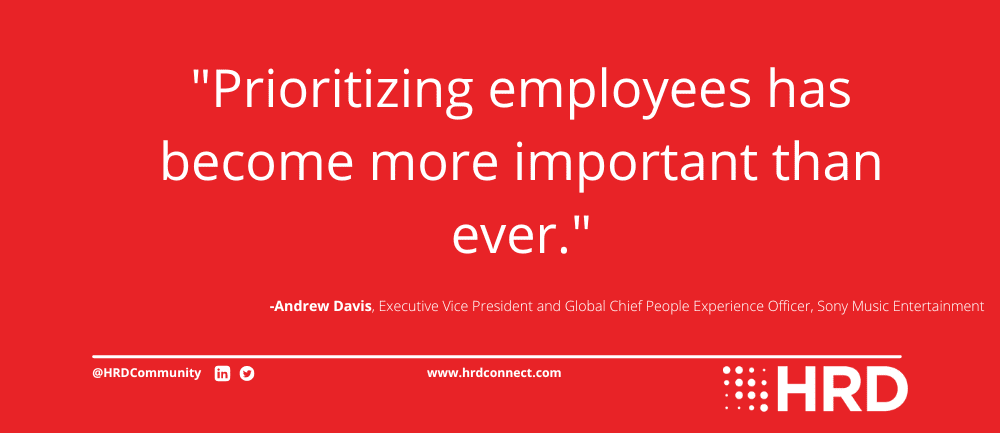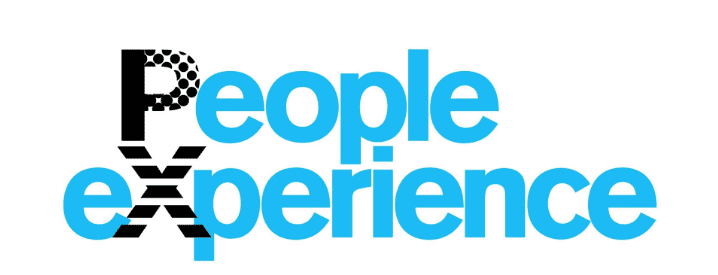-
Provided by

- Date published: Oct 14, 2022
- Categories
The phrase “great resignation” first appeared in May 2021 and it quickly struck fear into the very hearts of employers, as it appeared that unprecedented numbers of workers were resigning from their jobs. As if this wasn’t bad enough, 2022 has seen the rise of so-called “quiet quitting“, which describes employees who do the bare minimum expected of them at work. Both trends signify the clear desire among employees for more meaningful work.
While customer experience is something that most companies will invest heavily in, research from Deloitte suggests that just 9% of leaders have a similar focus on employee experience. Organizations have focused on employee experience due to a growing body of evidence showing that doing so provides robust returns on investment. Indeed, one study found that companies that get it right can generate 25% higher profits than those that don’t.
A more holistic approach
As the Covid-19 pandemic raged across the world, there was a concerted focus on the workforce not just during office hours but also across their entire lives. The widescale rise in remote working shone a light on people’s home lives and managers became more aware of caring responsibilities employees might have or any health concerns they’re battling with. The growing interest in the mental wellbeing of employees is underpinning the rise of “people experience”, which takes into account the whole lives of people and considers both how employees’ wider lives impact work, and how work impacts their wider life.
Indeed, recent research from EY found that more and more of us are striving for a real sense of belonging at work, and that this urge has been exacerbated by the Covid pandemic, which made loneliness and isolation a more pressing concern than ever before. This was further reiterated by O.C. Tanner’s latest Global Culture Report, which identified connectivity and belonging as key desires for workers in the post-Covid world.
“Regardless of their place on the org chart, people have begun to seek more opportunities to connect with each other, and they are looking to their employers for help,” the authors write. “Among the most common sentiments is a longing for community— the feeling of belonging to a group with a purpose that invites and inspires the person to contribute meaningful work.”
A great leap forward
As a record company full to the brim with creative people that bring diverse music to the world, Sony Music Entertainment has long understood the value of putting its employees and artists first. Pre-pandemic, the company launched a series of initiatives to support employees ranging from mental health days and ‘Premium Days’ through to 24/7 access to financial, legal, and counseling support and more.
However, the pandemic helped accelerate this evolution, propelling the company towards a truly people-driven culture whereby employees are supported and empowered throughout their whole lives, not just through their working lives.
“The pandemic leapfrogged the global workforce 25 years into the future,” Andrew Davis, Executive Vice President, and Global Chief People Experience Officer at Sony Music Entertainment says. “We were always heading towards this new future of work where employees expect more flexibility, a better quality work life, and more purpose in their work, the pandemic accelerated all of those shifts.”
The journey towards a people-driven culture began with the realization that HR had a bit of an image problem. For many years, HR professionals have complained that they lack the boardroom presence and strategic clout of other departments, and too often HR is instead seen as the “problem or policy police”, who are called into action when there is a negative workplace situation.
Of course, any HR professional will tell you that this is a long way from reality, but that perception has proven difficult to shift. The pandemic changed all of that and forced companies to become far more employee-centric, and given the ongoing “war for talent,” no organization could afford to be stuck in the old ways of working. Instead, prioritizing employees has become more important than ever.
“I don’t even like the term ‘employee’ as it denotes a one-way relationship. Ultimately, we plan to move towards a more people-centric nomenclature,” Davis continues. “The Human Resource name served us well for many decades but it’s time to evolve and People eXperience just makes sense, because it does come down to the experience at work. It’s about your sense of belonging in the culture, it’s about how you’re supported in your development, your overall well-being, and career growth. In essence, it’s all about how we enable and support each individual to perform at their very best and realize their full potential.”

First steps
As the company is inherently a creative company, they began by seeking to understand and examine the nomenclature of HR, because they understood that the way we talk influences how we think and behave. At the same time, they also developed a brand for the entire initiative, complete with a People eXperience (PX) logo, and produced a video to help launch the initiative, with the multimedia element key for such a creative company.
This early stage also involved a deep dive into the current state of the department, understanding what was working and not. Then an intensive consultation with senior executives of the company, with diversity and inclusion experts, and ultimately the Chairman of the Company. It was important for other leaders at Sony Music to understand why the company was doing this and how the company would benefit. It was vital that they understood that this wasn’t something that was superficial or a nice-to-have, but went to the very heart of how the best talent was attracted, hired, developed, retained, and motivated. Sony Music’s Chairman co-signed the name change, while also being a key sponsor of the entire initiative.
Cultural Change, believes Davis, will not be an overnight process. It will take time to help employees understand and experience the key role PX plays in supporting the whole person at work, while also using the new strategic role of the PX function to drive sustainable organizational performance and build competitive advantage.
“The balance of delivering value to the business and supporting a positive experience at work was critical to me. We must avoid an ‘us’ against ‘them’ (employee vs company) culture that so many organizations have and are battling now more than ever,” Davis explains. “Instead, we want people experience to be very much a collective approach built on trust that matters equally for all 5,000 plus of our people in our company around the world.”

An ongoing process
As with most culture-development initiatives, the shift towards people experience is not a transformation that will ever be complete. The company’s whole person-centered approach acts as the fundamental North Star that guides everything they do, but the co-creation of impactful and inclusive experiences will inevitably be an ongoing process that is designed to bolster trust and mutual commitment across the business. This is important, as Gartner recently found that when benefits and other initiatives are used in a way that aims to bolster connectivity and belonging, it can boost inclusion by around 40%.
“When I talk to candidates about what they’re looking for in their next opportunity, it’s way bigger than just salary or time off,” Alex Dutton, Associate Director of Experienced Hire within the Talent Acquisition team at Sony Music, explains. “They want to know that they’re in an environment that’s psychologically safe and that fosters creativity and growth, and our approach to people experience is a perfect way to convey our thoughts on these topics.”
The whole-person approach is also exemplified in some of the benefits that are available to employees. For instance, a range of mental health initiatives has been offered throughout the company. This is important, as a recent survey from the American Psychological Association shows that 80% of US workers want their employer to support their mental health. What’s more, they will actively consider this support when looking at job opportunities in the future.
“These findings underscore the importance of mental health support in the workplace to workers across all industries,” the researchers say. “Some of the increased focus on workplace mental health support may have resulted from employers working to meet employees’ needs in response to the COVID-19 pandemic. Though these efforts have been helpful, it is important to recognize many workers continue to struggle and need additional support. Therefore, employers must maintain and, in some cases, expand their mental health service offerings.”
The pandemic also shone a light on the challenges many people face in terms of childcare. Indeed, research from the Urban Institute found that there was a 50% rise in unpaid work absences during the pandemic, with many of these absences due to childcare needs. As such, childcare support has been a key benefit offered at Sony Music, with people in the UK entitled to claim a financial contribution towards the cost of childcare for pre-school age children during working hours.
Key principles
All of these initiatives operate according to four strategic pillars that have been identified as crucial guiding principles for all people experience work at the company:
- Talent: Attracting & retaining the right and best people into the business
- Culture: Ensuring they are surrounded by the best culture so they can thrive
- Capability: Providing the right capabilities and development opportunities
- Well-Being: Supporting employees with well-being benefits & programs that truly make their lives easier
These are then topped off with the overarching mission to be a fundamentally people-centric company. While the transformation towards this aim is still in its early days, Davis is confident that this is the right strategic approach and that the focus on people will put the organization on a sound footing to face today’s and tomorrow’s challenges.
“This new proposition of course applies to the PX community as well. We ultimately want to get stronger in terms of talent development, improve our PX processes and use technology to free up time for our business partners to do more value-added work for the organization,” Davis concludes. “I communicated to the team early in my tenure, and still do today, that PX exists to deliver value to the business and that means you should measure your impact by how you contribute to helping the organization successfully achieve its goals and objectives. To do that, our PX function also needs to operate at its best.”
